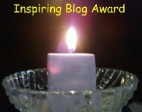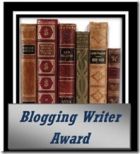Guest blog with Alex J Cavanaugh
Note from Cassandra: Thanks Alex for hosting me on your blog today and thanks for your guest post here on the realm. I hope everyone enjoys reading your thoughts.
In Tune with Writing
Every writer needs inspiration. We can envision a great story, but if we’re not inspired as we write, it falls into the neglected pile of incomplete projects. How do we maintain motivation for our characters and scenes?
It’s no secret I’m a music lover. Music moves me on every level. It uplifts me when I feel down or depressed. Music channels my anger when rage threatens to get the better of me. Since music affects my mood, I decided to use that to my advantage when writing.
Every scene possesses a mood. An action scene contains tension. A tragic scene boasts angst. A love scene… well, that one’s obvious! But regardless of the moment, there’s atmosphere and mood in every scene we create.
This is where music comes into play. A soundtrack sets the tone in movie; the tempo dictates the pace and flow of emotion. It can do the same for our writing. I always listen to music when writing, selecting the best composition for each scene.
When I need to amp up the tension or focus on an action heavy scene, I select something heavy and fast. The rapid tempo conveys a sense of urgency and helps me to focus on a dire situation. The music magnifies the moment. I pour the resulting energy into my words, letting the rhythm carry the story. As an added bonus, I write faster as well.
For emotionally charged scenes and intense character interactions, I select music that fits the mood. It can be slow or fast, but it must stir the emotions. The feelings provoked by the music help me channel a character’s frustration, despair, or jubilation into coherent phrases and words. I connect on a more personal level with my characters, adding depth to their personalities.
Music allows me to feel what I am writing. It places me in the scene and inside my characters’ heads. If you’re seeking inspiration or connection with your work, try music. It helps me stay in tune with my writing!
Alex J. Cavanaugh
Website: http://alexjcavanaugh.blogspot.com/
Note from Cassandra: By the way, if you don’t know, Alex’s first book is going to be released in October. Check out the details and the trailer here.
Shiny
Shiny, glittering, distractions.
It is how magicians get away with their tricks and it is frequently how movies manage to make even the weakest of stories seem somewhat plausible.
It would seem that in writing, distractions can’t save a poorly written story because you don’t have all the shine and glitter – you certainly don’t have an amazing soundtrack and special effects.
Still, many writers seem to use a bit of shine.
Colourful humour and language to throw the reader off the scent of poorly executed scene.
Flowery language and description to gloss over the massive plot hole.
Throw another dead body into a scene that was feeling like it was going nowhere.
Introduce a new character to hide the fact that one of your other characters has suddenly had a personality transplant.
And the thing is, as an audience member, you frequently allow yourself to be distracted by the shiny because it is fun. Because even though you know that you are being had, that something is missing, what you are being given is still enjoyable and there isn’t really any fun in pulling it to pieces. You know what is going on and you let it happen. At least when it is still enjoyable.
You start to really question the shiny when that is all you are being given. There is nothing else underneath and it isn’t really going anywhere. All you’ve been given is the glossy overcoat and there is no substance. As a reader, a lack of overall substance just can’t be tolerated.
So what shiny distractions do you enjoy reading? Which ones have you used? When won’t you accept a shiny distraction?
Reading Reminder
I was thinking the other day about my post on the sycophant and that actually got me thinking about my most recent reading (I’m currently working my way back through Eddings, again, I know). What I started wondering was how many times should you remind your reader about the nature of a character (either through action or through other character descriptions). It seems that if you endless preface everything the character does by a reminder about why you like/don’t like them eventually your reader is going to get sick of being treated like a child with no attention span but if you don’t put enough cues and reminders in you risk your reader forgetting key points about that character.
In relation to my own writing I’ve noticed that I have a lot of reminders in first drafts. Most of my ‘abandoned’ projects are full of these prompts (some in bold for my reference so I remember what I was trying to convey about the character at the time). One in particular has something on nearly every single page to remind the reader that character S is meant to be unstable. Other characters hint at it, she does something that not clear minded person would do, an earlier incident is referenced, something is hidden from her because she may not be trustworthy. Every single page. Okay, I may have missed two pages because she wasn’t involved in either scene but you get the point.
Wouldn’t reading that just drive you up the wall? Wouldn’t you want to ask the author – how dumb do you think I am? You just told me she was unstable, you showed it clearly, move on with the story already.
At the same time, if she was called unstable, did one slightly zany thing and then consistently acted normally throughout the story, when her instability became essential to the plot, the reader may have forgotten it entirely and wonder what planet the author was on when they wrote that critical scene.
This brings me to Eddings (awesome epic fantasy writer that he is) and his use of provisional reminders. Mostly with the Ellenium trilogy I’ve noticed that as each character is introduced they are given, or demonstrate to have, a number of very specific character traits. These recur periodically but not to the point where the story is stagnating in flags and pointers. However, if a character is absent for multiple chapters, upon their return, one of the other characters will usually make mention of having missed something about them, or they will almost immediately do something that reminds you of their character traits. Also, at the beginning of the second and third books, the first time a character is reintroduced the protagonist makes a point of considering his companions but he does it in a way that isn’t too intrusive to the story and it is a pretty quick recap.
I think Eddings found that balance between reminding the reader of the critical points without getting endlessly repetitious, and he’s disguised his reminders for the most part or at least managed to weave it into part of the story.
So, writers and readers out there, what are your thoughts? Do you like to be reminded or do you like to move on with the plot? Is finding a balance the key?
Blind Draft
I seldom read over what I’ve written immediately after I write it. Mostly because I usually hate every single word and delete it rather than giving myself the space I need to read it and see the good in it and preserve the good while carefully editing.
That said, I read a scene that I drafted the other day immediately after finishing it. Not so much because I wanted to delete it but because I had a nagging feeling that something was terribly wrong and the feeling wouldn’t let go of me until I’d read it. For once I didn’t reach for the delete key right away. Instead I started thinking through all the sensible questions. What was I trying to accomplish with this scene? What perspective was I trying to tell the story from? How did this scene fit into the overall story I was trying to write?
Then I reached for the delete key. Not because I hated what I had written but because I suddenly knew exactly what was bothering me about the scene.
The point of the scene was to introduce the character of a new player in the story and establish her relationship with an already established character. This relationship is going to be built out and has quite a history that will unfold throughout the story but at this scene just needed to establish where their relationship was and not how it got there. So the question I was left asking was why exactly this new character’s family history was being explained in extremely dull exposition, meanwhile the relationship was so played down as to be non-existent within the scene.
Two rewrites later and I think the scene is now serving its purpose. It still isn’t good. It is very much in a rough draft stage and no doubt I will have to rewrite it many more times before I’m actually happy with it, but just getting rid of all the excessive and useless information that was cluttering up the scene and making it drag has made it that much better and easier to read. It’s also helped to highlight what is actually important within the scene.
I don’t think I’m going to do this with every scene during the first draft stage. I’d probably never finish the first draft and end up in an endless cycle of rewriting, but an occasional surgical look at specific problematic scenes definitely served its purpose.
What’s your drafting process?
Am I Editing, Revising, or Rewriting?
Sometimes it is difficult to know.
What starts out as a simple search and destroy for typos can suddenly become a revision of a clumsy scene which can soon morph into an entire rewrite of an act of a novel. I think the problem here comes from not being able to focus on only one aspect of the writing at a time.
For me, I like to start with the big stuff and work my way down to the small. While I’ll correct typing errors as I see them and move punctuation that is truly being offensive, editing the nitty-gritty is kind of the last ditch run through, mostly because if I revise or rewrite I know I’m just going to put more errors into the text.
So I begin with the rewrites. I may stay in the rewriting stage for the rest of forever with some manuscripts. Rewrites, for me, are the massive changes. The adding characters, taking them out, changing direction entirely, cutting scenes, adding scenes, moving scenes. All of the things that give you a huge headache when it comes to checking for continuity errors and will usually have you rewriting chapter after chapter to accommodate the change you made way back in the beginning.
Then I revise. These are the more surgical changes. Adding an emphasis here, changing the wording of that exchange of dialogue there, altering a description in that chapter. Sometimes these have carry on effects but normally it is just tightening up the overall story that has already been rewritten (many times) and checked for continuity.
Then, should I have made it this far and not put the project aside, comes the editing.
Still, despite wanting to work from one layer down to the next, down to the next, I end up jumping back and forth between the three.
How does your process for revisions work?



